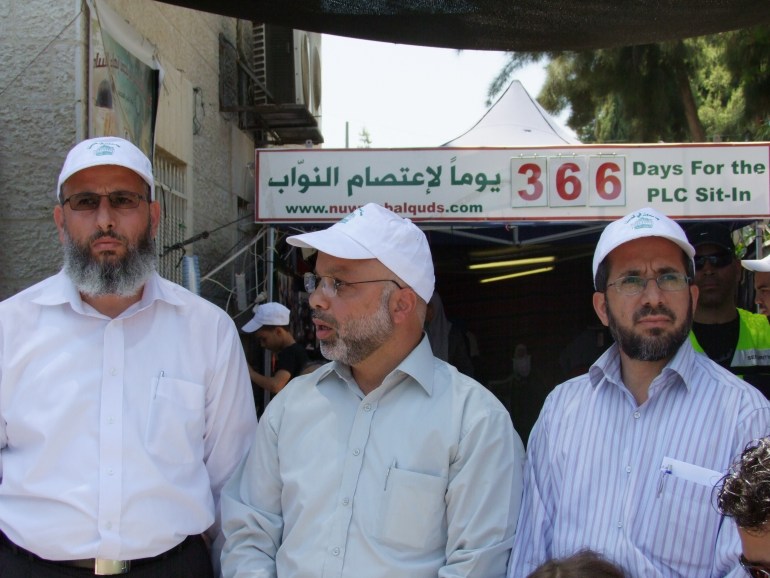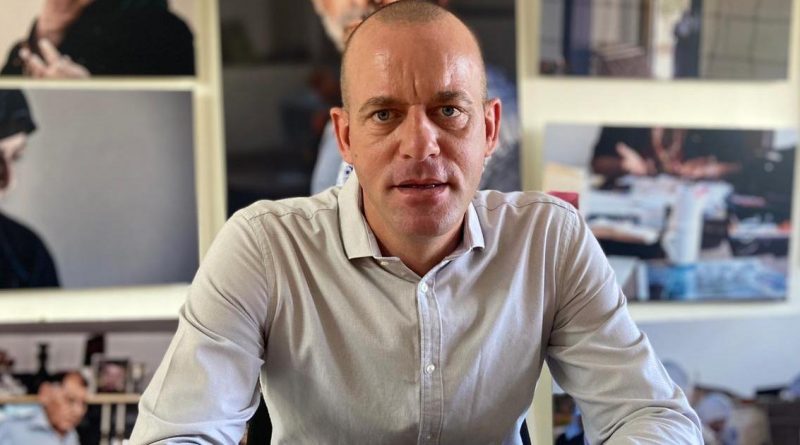Israel’s ‘silent transfer’ of Palestinians out of Palestine | Middle East
Occupied East Jerusalem – As more Arab countries normalise relations with Israel, it presses on with a policy of “silent transfer” – an intricate system that targets Palestinians in occupied East Jerusalem with residency revocation, displacement through house demolitions, barriers in obtaining building permits, and high taxes.
Palestinian researcher Manosur Manasra notes Israel launched this policy of transfer against Palestinians in East Jerusalem almost immediately after the 1967 war and the subsequent occupation of the eastern part of the city.
The policy continues to this day with the aim to dominate East Jerusalem.
Land expropriation for Jewish settlements has taken place around East Jerusalem and in the heart of Palestinian neighbourhoods such as the Old City’s Muslim and the Christian Quarters and beyond in Sheikh Jarrah, Silwan, Ras al-Amoud and Abu Tur since as early as 1968.
Following the June 1967 war, Israel applied Israeli law to East Jerusalem and granted Palestinians “permanent resident” status. However, in effect, it is a fragile one. B’tselem, the Israeli human rights information centre in the occupied Palestinian territories describes this status as one “accorded to foreign nationals wishing to reside in Israel”, except that Palestinians are indigenous to the land.
Palestinians of East Jerusalem do not have a right to automatic Israeli citizenship nor are issued Palestinian passports by the Palestinian Authority (PA). They are usually able to obtain temporary Jordanian and Israeli travel documents.
By allotting a fragile residency status to Palestinians in East Jerusalem, Israel has succeeded to revoke and subsequently uproot more than 14,200 Palestinians from East Jerusalem since 1967. These measures coincide with an aggressive house demolition practice.
Home demolitions in the West Bank did not stop despite the coronavirus pandemic.
According to the United Nations, there was a nearly fourfold increase in the number of people displaced from January-August 2020, and a 55 percent rise of structures targeted with demolitions or confiscations compared with a year earlier.
In East Jerusalem, 24 structures were demolished last month, half of them by their owners following the issuance of demolition orders by the Jerusalem municipality.
The “permanent residency” status is maintained as long as Palestinians keep a physical presence in the city. However, in some cases, the Israeli authorities move to withdraw the residency status of Palestinians in East Jerusalem as a retribution measure because they are political dissidents. Israel’s pursuit of Palestinian activists is extensive and does not exclude any faction.
The most recent case is that of 35-year-old Salah Hammouri, a lawyer and activist. Arye Deri, Israel’s interior minister, says Salah is a member of the Palestine Front for the Liberation of Palestine (PFLP). Israel outlawed the group and wants him out of the country.
In some cases, Israeli authorities cancel the residency permits of spouses of political activists as a punishment. Shadi Mtoor, a Fatah member from East Jerusalem, is currently fighting a case in the Israeli courts to keep his wife’s residence in East Jerusalem. She is originally from the West Bank.
In 2010, Israel revoked the Jerusalem residency of four senior Hamas members – three of whom were elected to the Palestinian Parliament in 2006 and one who served as a cabinet minister – on the grounds they pose a danger to the state. Three live in Ramallah now and one is under administrative detention. A hearing at the Israeli High Court is scheduled for October 26.
In some cases, Israel does not issue a residency ID for a child whose father is from Jerusalem and mother from the West Bank.
International law explicitly condemns the forcible transfer of civilians.
“Ultimately our decision is to remain in this city,” says Hammouri.
 INTERACTIVE: Palestine/West Bank Illegal settlements – 112 companies
INTERACTIVE: Palestine/West Bank Illegal settlements – 112 companiesIn early September, he was summoned by the Israeli police and informed of the Israeli interior minister’s intent to revoke his Jerusalem residency.
“I was told I constitute a danger to the state and that I belong to the Popular Front for the Liberation of Palestine,” said Hammouri.
A French citizen, Hammouri was born in Jerusalem to a Palestinian father and a French mother. In 2017, the family was split when Israel barred his wife, Elsa, who is also a French national and at the time pregnant, from entering the country. The reason was said to be based on a secret file that Israel had.
Hammouri expects Israel to expel him to France after his residency is formally revoked. The French government, in response, issued a statement calling on Israel to allow Hammouri to continue to reside in Jerusalem.
“Mr Salah Hammouri must be able to lead a normal life in Jerusalem where he was born and where he resides,” it said.
The Israeli foreign ministry alleges Hammouri is a “senior operative” of a terrorist organisation and continues to engage in “hostile activity” against the state of Israel.
A solidarity campaign calling for Hammouri’s right to retain his Jerusalem residency is now under way in France, and French diplomats in Jerusalem are currently negotiating with Israeli officials in order to get it to reverse its decision. He intends to challenge the case to withdraw his residency in court.
Hammouri spent more than eight years in Israeli prisons over different periods. In 2011, at the end of a seven-year jail sentence, he was freed in a prisoner exchange deal between Hamas and Israel (known as the Shalit deal).
Sahar Francis, director of the Prisoner Support and Human Rights Association known as Addameer, told Al Jazeera “the cancellation of residency is illegal according to international law”.
“The occupation state has no right to cancel the residency of protected people under the Fourth Geneva Convention. This is called forcible transfer and forcible transfer is forbidden,” Francis said.
The PFLP first opposed the 1993 Oslo Accords but then came to accept the two-state solution. However, in 2010 it beckoned the PLO to end negotiations with Israel and asserted that only a one-state solution for Palestinians and Jews is possible.
“I see a very dark horizon,” says Khaled Abu Arafeh, 59, a former PA minister.
“Israel will invest the recent local and regional developments of normalisation and the result will be the expulsion of the inhabitants of the West Bank and the reformulation of the position of Palestinians of 1948,” he adds.
Abu Arafeh served as the minister for Jerusalem affairs between March 2006 and March 2007 in Ismail Haniyeh’s government, which was formed after the Hamas won a majority of seats in the 2006 parliamentary elections.
Two months after the formation of the Palestinian government, the Israeli police notified three Palestinian Legislative Council (PLC) members and cabinet minister Abu Arafeh, all from Jerusalem, they had 30 days to quit their posts or their residency status would be revoked.
The Israeli police threat was rejected and the four went to court to contest the interior ministry’s ultimatum.
On June 29, 2006, the Israeli police carried out a broad arrest campaign that targeted 45 newly elected PLC members and 10 cabinet ministers. Jerusalem PLC members Muhammad Abu Teir, Muhammad Totah, Ahmad Atoun and Abu Arafeh were among those arrested. Israel charged them with belonging to the “reform and change” list, which was affiliated with the Islamic movement Hamas.
Abu Arafeh was sentenced to 27 months in prison and was released in September 2008. Abu Teir and Totah were handed longer sentences and were not released until May 2010.
On June 1, 2010, the Israeli police summoned the men again. This time they were ordered to surrender their Jerusalem IDs and were given one month to leave Israel.
Just as the period was about to expire, the Israeli police arrested Abu Teir.
 Muhammad Totah, Ahmad Atoun, and Khaled Abu Arafeh in 2010 while in refuge at the ICRC building in East Jerusalem [File]
Muhammad Totah, Ahmad Atoun, and Khaled Abu Arafeh in 2010 while in refuge at the ICRC building in East Jerusalem [File]Abu Arafeh, Atoun and Totah, sensing imminent arrest, took refuge in the International Committee of the Red Cross (ICRC) building in Sheikh Jarrah in East Jerusalem. Their stay lasted for 19 months; living in a tent within the premises. The Israeli police finally stormed the building and arrested the three men.
They were charged with belonging to a “terror group” and holding senior ranks in the Hamas movement, as well as incitement against the state of Israel. They were sentenced to two years in jail. Upon their release, they resided in Ramallah.
“Away from al-Quds, I feel estranged, very estranged,” Abu Arafeh lamented about his situation.
Abu Arafeh’s family continues to reside in East Jerusalem. “I live in Ramallah and they live in al-Quds,” Abu Arafeh told Al Jazeera. “They visit every weekend then they go back home.”
Atoun is currently under administrative detention, his fourth since 2014.
In 2018, the Israeli High Court ruled the interior ministry’s decision to withdraw the residency status was illegal as there were no laws to support it. However, it gave the interior ministry six months to go to the Knesset to enact a law. The Knesset passed a law that allows the revocation of residencies for individuals who are deemed not loyal to the state of Israel.
The four Palestinians to this day have no identification papers that would allow them to cross Israeli checkpoints within the West Bank. The only document they were able to obtain was a driver’s licence from the PA, but only after the Israeli army approved.
Because they do not have IDs, they rarely venture outside Ramallah for fear of being stopped and arrested at an Israeli checkpoint.
The four appealed the High Court’s ruling and demanded that Israel provide them with an alternative residency to enable them to live legally in the West Bank. A court hearing is scheduled for October 26, but Abu Arafeh does not expect a ruling.
“We do not expect a decision; the occupation authorities are using time against us,” he said.
A Palestinian woman who asked to be identified as JA, 24, was born in the West Bank city of Bethlehem. Her father is from East Jerusalem and holds a Jerusalem ID. But her mother is from Bethlehem and holds a PA-issued ID card.
The Israeli interior ministry has rejected all applications to issue JA an ID card because she was born in the West Bank. The PA also did not provide an ID card because her father holds a Jerusalem ID.
So currently she has no documents whatsoever. This situation has caused JA endless problems registering in schools, finding employment, opening bank accounts, and other usual necessities. She has never travelled.
JA is now suing the Israeli ministry of interior in an attempt to receive a legal residency.

